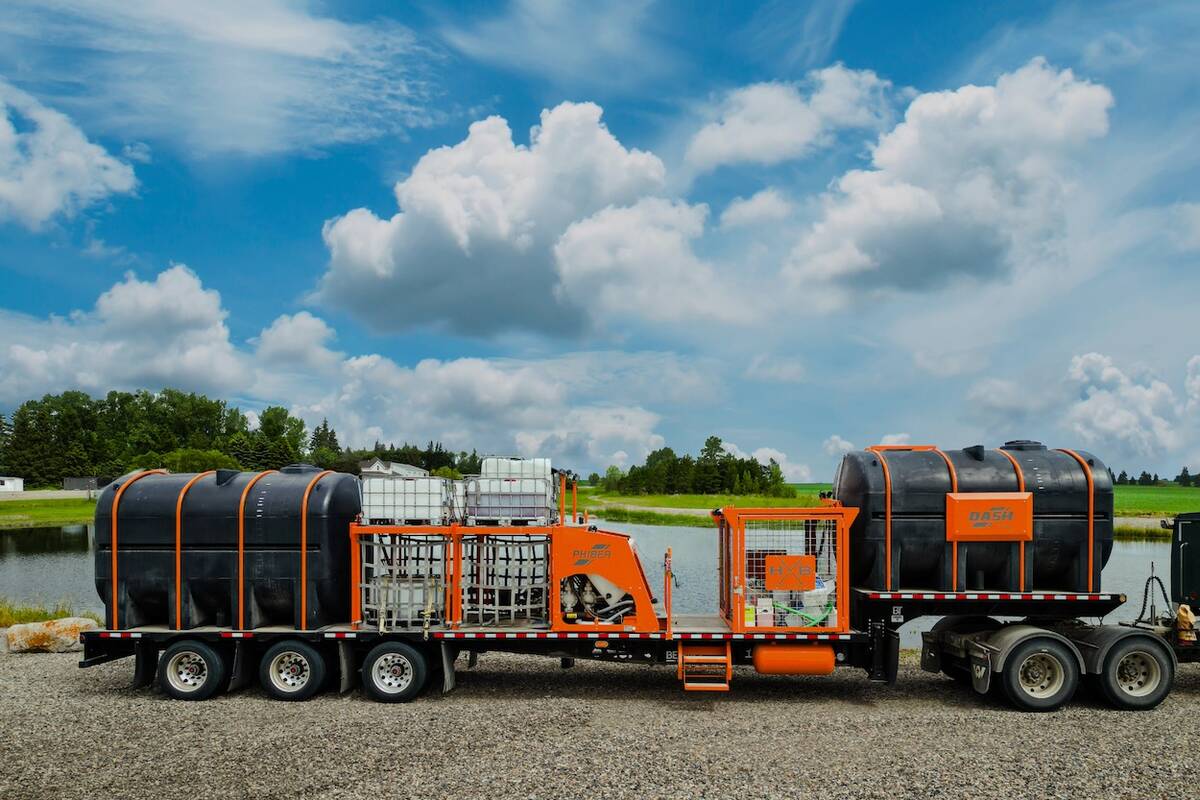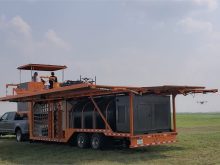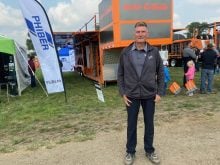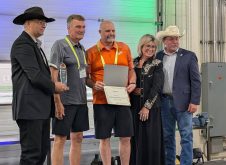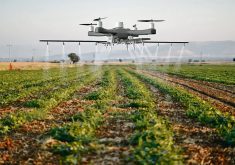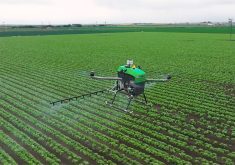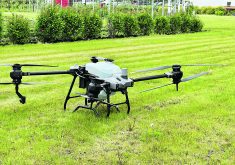Just as grain carts can improve the efficiency of combines working in the field, PhiBer Manufacturing’s owner and CEO Derek Friesen says his company’s Dash sprayer tender trailer can do the same thing for field sprayers.
“It basically takes a traditional sprayer and increases its capacity by 25 or 30 per cent, because we can make it fill so fast. That’s been our big thing. (Demand) is rapidly growing.”
The company has now designed a trailer intended to cater to the emerging trend of handling broad-acre spraying with drones, bringing efficiencies to that operation as well.
Read Also
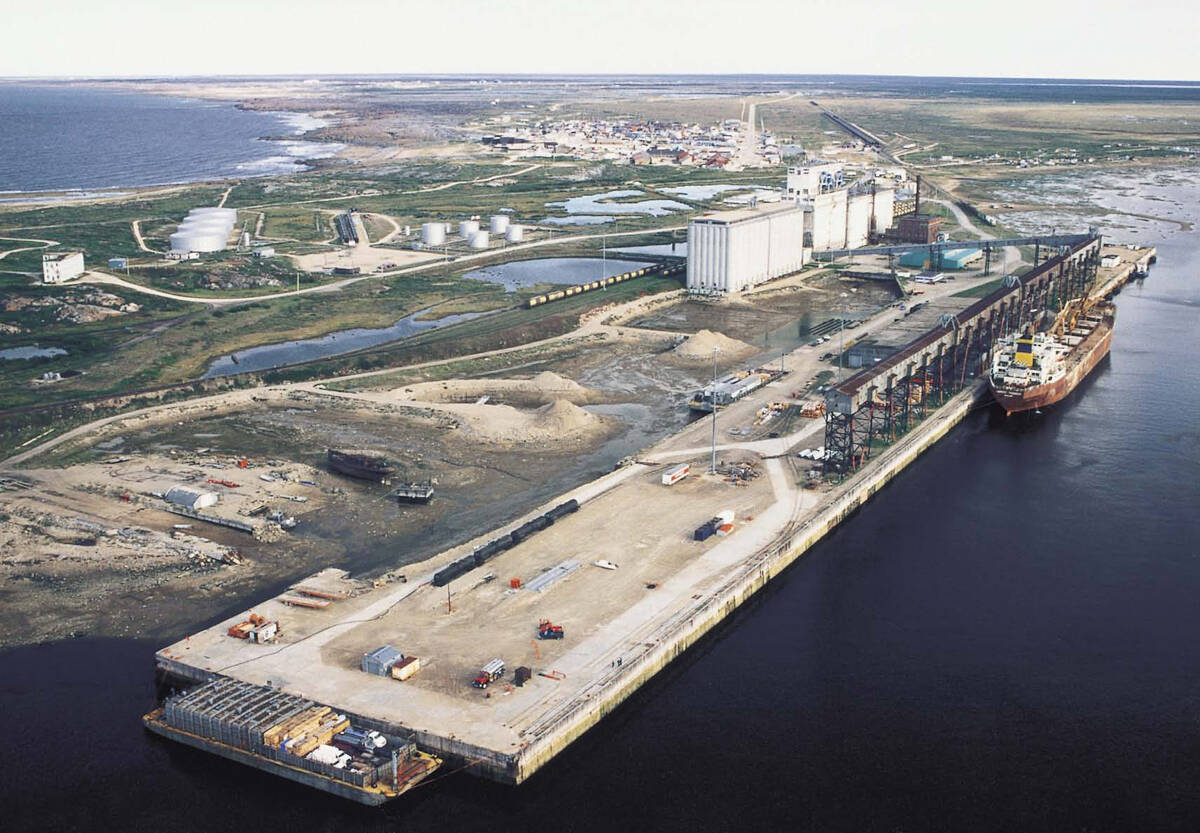
Defence investments could benefit agriculture
A bump in Canada’s NATO spending commitments could lead to infrastructure investments that would benefit rural areas
Friesen says he believes drone spraying will soon become one of the fastest-growing segments in the ag equipment sector, citing the fact two of today’s large application drones working together can keep up with a standard field sprayer.
“Now, we’re getting into the drone industry as well,” he says. “Our first production trailers are just coming off the line now.
“This trailer will replace what a typical ground sprayer will do in acres per hour. We’ve built the infrastructure to support those drones. We have a whole lineup of drone stuff coming.
“I actually expect this (Dash trailers) to be our largest product line in the years to come.”
PhiBer has seen steadily increasing demand for its Dash trailers, earth-moving products and hay tools in the past few years. As a result, the company has embarked on an ambitious building project, adding a 60,000-square foot production facility to its current manufacturing footprint at Crystal City, Man., about 130 km southwest of Portage la Prairie.
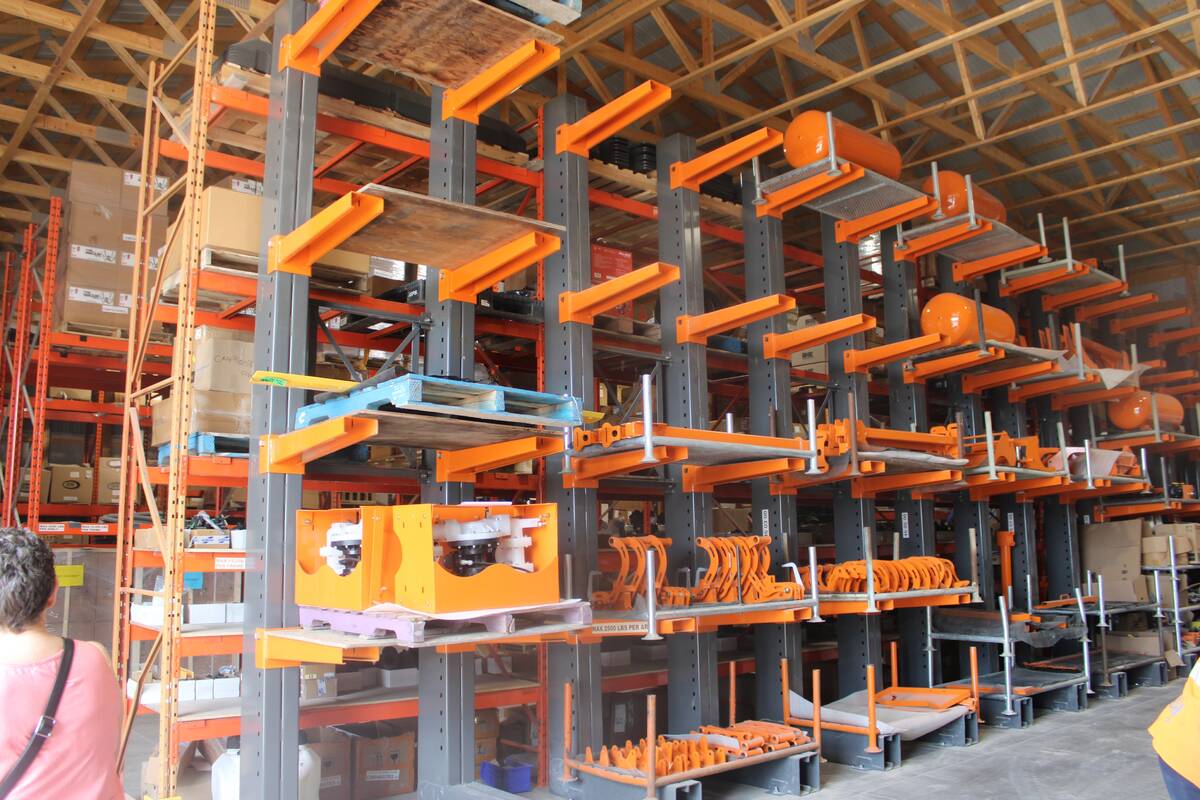
PhiBer will also roughly double its workforce once the new building is completed.
“We’ve been going through extreme growth in the last number of years,” he says. “I think our four-year average is 48 per cent growth year over year.”
Depending on the configuration, a Dash trailer can carry different sizes of plastic product tanks, which PhiBer currently imports from the U.S. However, the new facility will be home to a very large plastic molding system, which is capable of forming tanks of up to 5,000 gallons for installation on Dash trailers, as well as forming even larger permanent on-site storage tanks.
“There are only two machines in Canada that are big enough to do what we need,” Friesen says. “Right now it’s all being done in the States, and we want to bring it back to Canada. So the largest machine in Canada will be here.”
The new building will also house three automated laser parts-cutting systems to speed up manufacturing.
PhiBer has chosen to market its equipment direct to farmers instead of retailing through a dealer network. That, Friesen says, helps the company keep sticker prices as low as possible, cutting out the middleman.
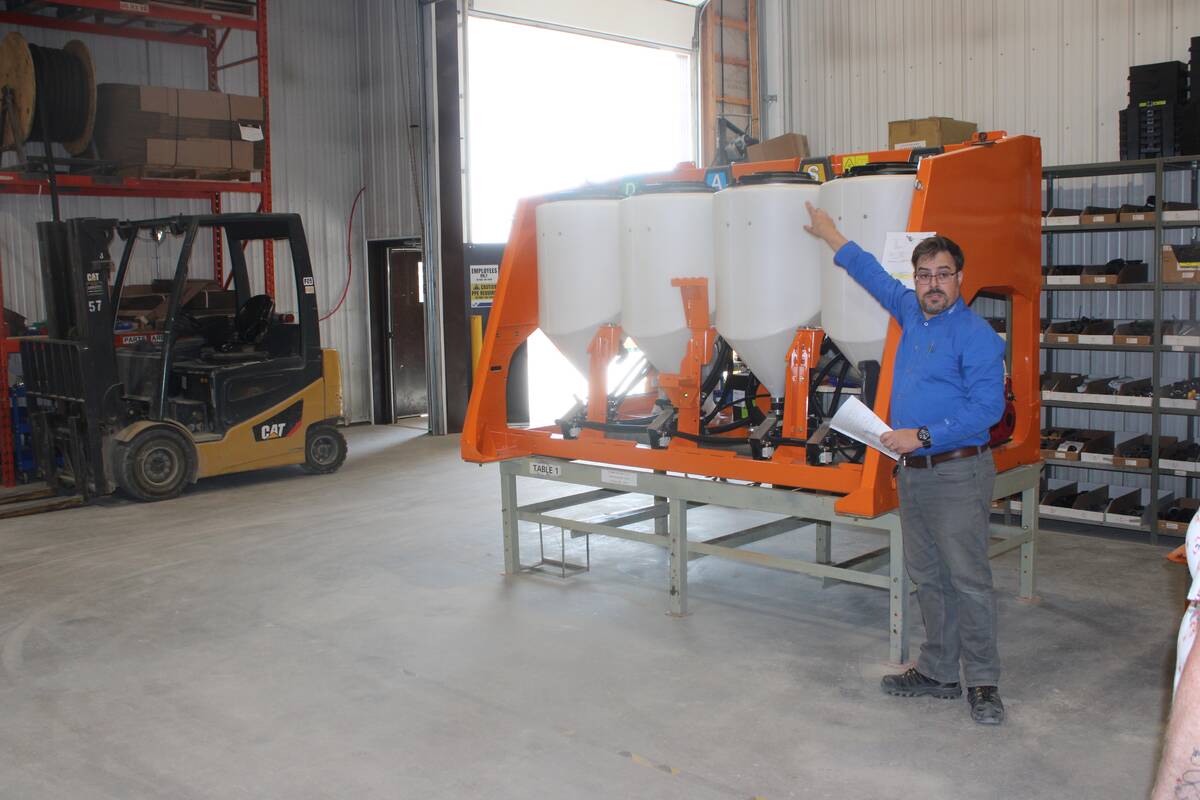
To handle sales, the company has setup a new AI-assisted website that will allow interested farmers to configure a Dash tender trailer with exactly the right setup to meet their needs.
“One of the unique things is we go direct to customers with our products, aside from the hay tools which are sold through OEM channels,” Friesen says. “We have an online presence. We’ve now launched a digital platform where people can get a quote and build a trailer in the system and place their order, buying parts — it’s all done through e-commerce if they want.
“We’re not trying to replace people but create a tool to connect with people. Guys can create and design an entire trailer system themselves online. They can build their dream system. There are over 3.5 million ways we can configure a Dash trailer. It’s all very customizable.”
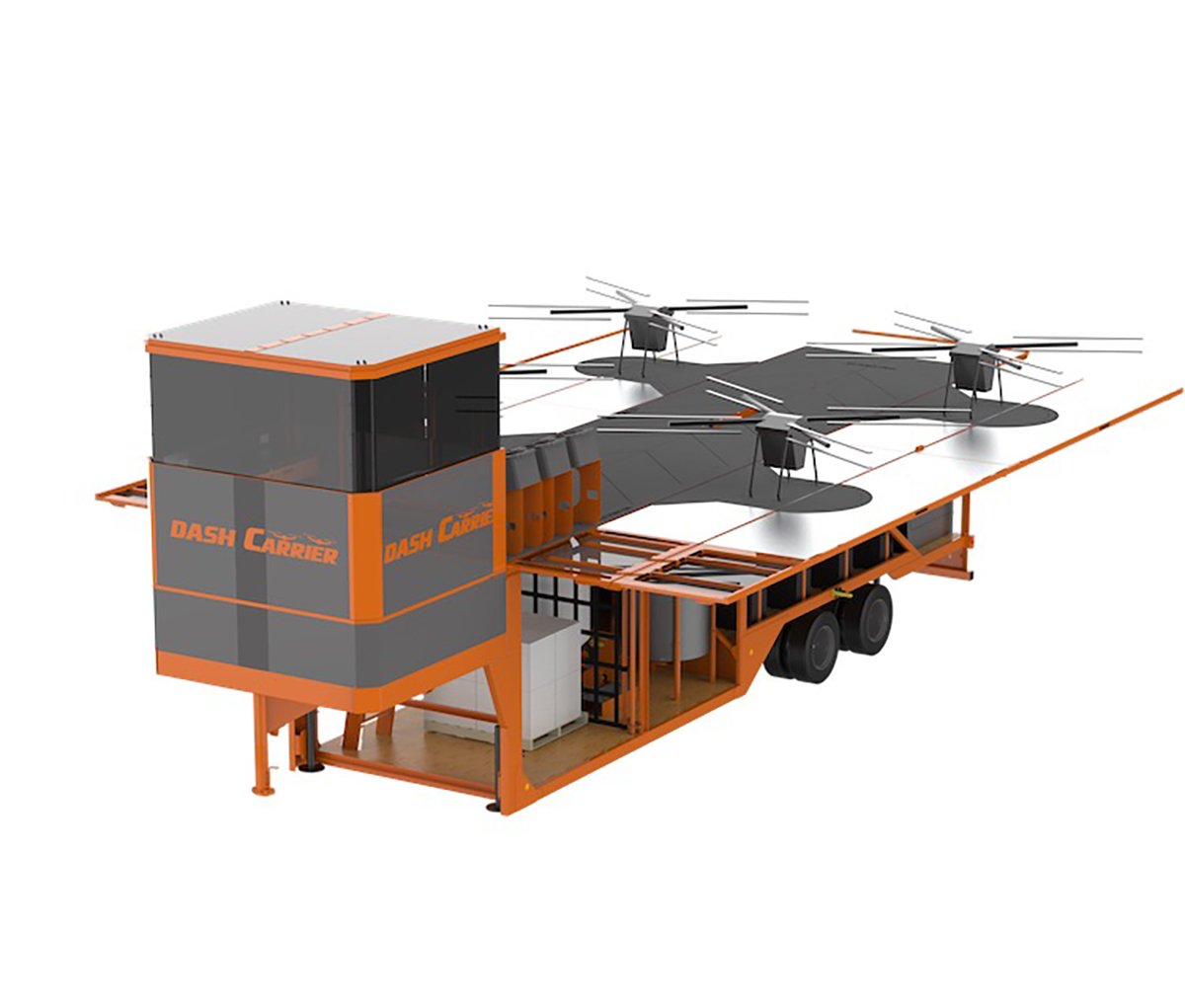
Customers can also contact the company directly by phone for assistance in designing a Dash if they prefer.
The Dash trailer system has become PhiBer’s keystone product, and with increasing demand the company has now set up companies in the U.S. and Australia to keep up with international sales. Those foreign sales are key to PhiBer’s expansion.
“We’ve been selling into the U.S. for a number of years, and it remains a big part of our market,” he says. “It’s our No. 1 growth opportunity despite some of the political challenges.”


